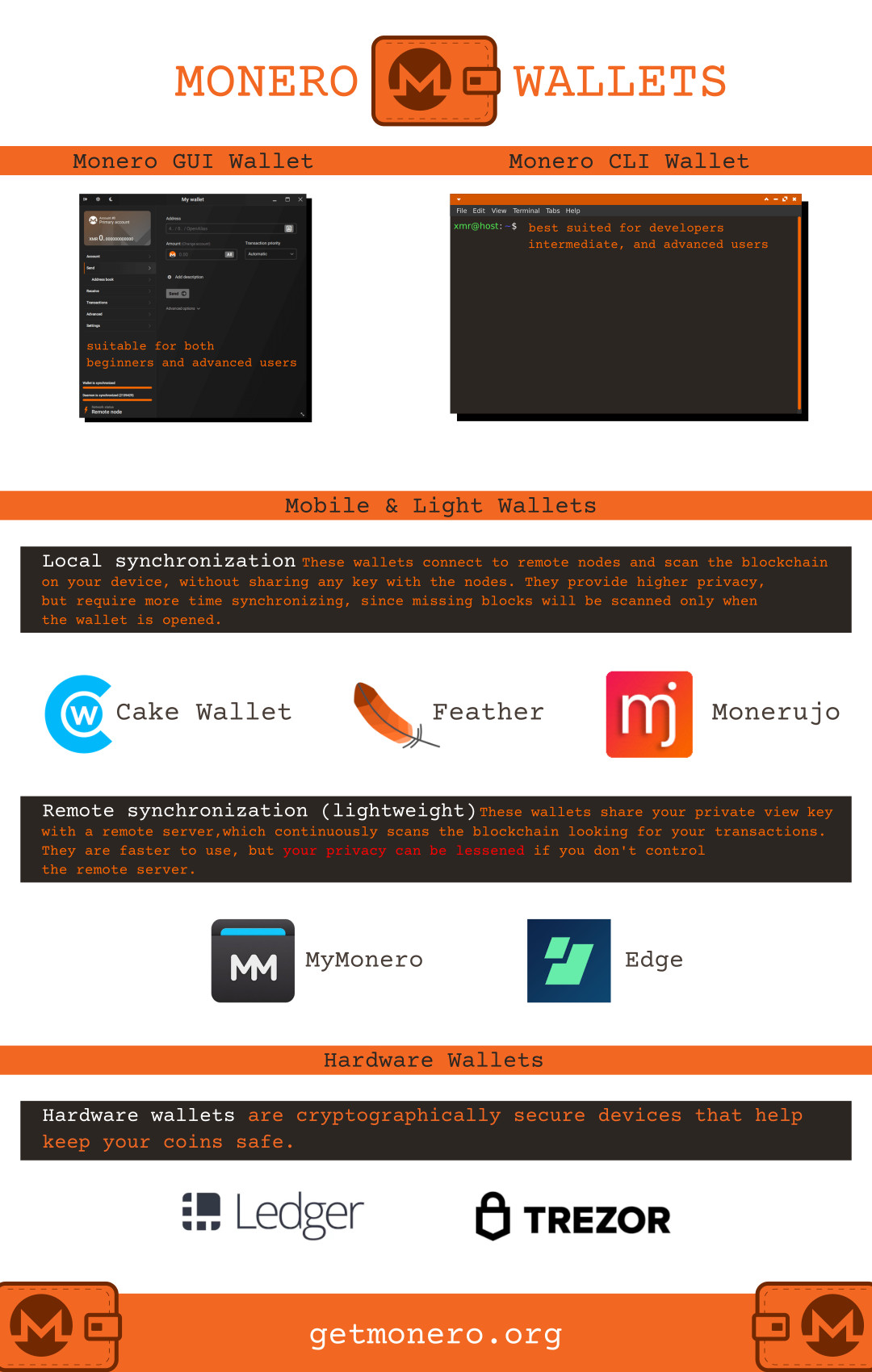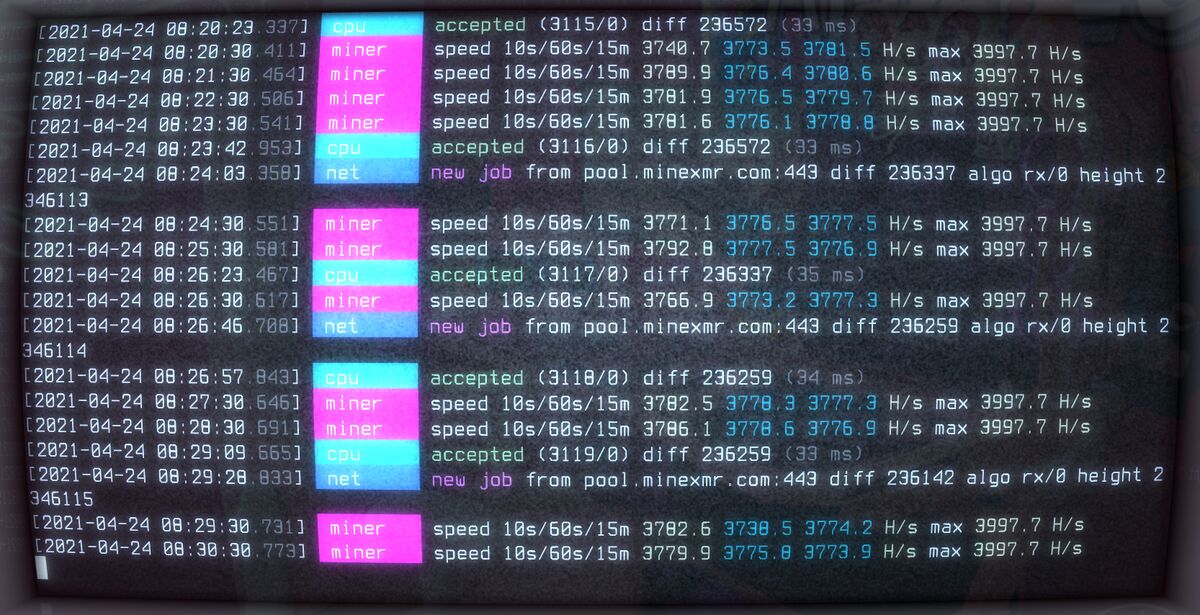#monero
Be careful with theses documents, they are sensitives. #jfk #freedom #assange #freeassange #conspiracy #privacy #monero #bitcoin
PS: Use TOR if you want to navigate to following link.
PS: Accessible online here: https://www.jfklibrary.org/archives/other-resources/john-f-kennedy-speeches/american-newspaper-publishers-association-19610427
PS: original audio record available on the link.
When governments will force majors miners to implement a black list, it will be over for #Bitcoin because even if you obtain it anonymously, your bitcoin's address will be blocked onchain and banned from exchanges when a transaction will be sent to government's opposition. This is possible because Bitcoin is not private. #Monero fix this.
We’ll show you shrinks, we’ll show you spooks,
we’ll buy you drinks, throw away your books
We’ll sell you crap, we’ll charge you tax,
we’re out buying big guns and you’ll front the cash
Your security, your sobriety, your innocence, your society
Your self, your place, your distance, your space.
You are free to do as we tell you
https://www.youtube.com/watch?v=zG29C4skboc
#Anarchy #Activism #Cyberpunk #Hacking #Freedom #Culture #Covid #Bitcoin #Monero
#datasafety #crypto #cloud #sia #siastorage #crypto #datengrab #securespace
http://7bpwizoqcia6q53sfydvsvyytixha54xwsixzlojepcydvqmmeii3yid.onion
nextcloud mit sia-storage - register here:
http://register.7bpwizoqcia6q53sfydvsvyytixha54xwsixzlojepcydvqmmeii3yid.onion/
#storage #darknet #securestorage #speicherplatz #monero #hosting #webspace #russia
3 Likes
5 Comments
the whole project started, because a lemon tree needed some heating in the winter.
- simply download the wallet app from here
- it runs on any OS
- comes with a miner pre installed
- will automatically generate a walletid
does it pay off? not without “free” energy
because there is no such thing as free energy, “only other user’s devices” and “other’s users energy bills” (which is more than CO2 evil).
currently: not with i5s and Xeons, the user will need a very expensive 32x Core or even better 64x Core x86 CPU
- AMD THREADRIPPER 3990X STOCK 57000 h/s @ 280 W via XMRig 6.13 (very expensive CPU)
- AMD EPYC 7742 44000 h/s @ 225 W via XMRig 5.31 (also pretty expensive)
- EPYC 7702 43000 h/s @ 200 W via XMRIG 6.2.0 BETA (also very expensive)
- AMD RYZEN 9 5900X 15500 hs/s @ 166 W via XMRig 6.6.0 ($0.42 daily gains *30 = $12.60 monthly… well….)
At1 XMR monero price trading below $250 @ (0.3€ per 1kWh) ratio, all Xeon CPU mining is a loss and thus pure activism
- what is good:
- it is open source: https://github.com/monero-project/monero
- it aims to be 100% anonymous crypto payment system
- activism: might be somewhat legitimate, but only @ 100% renewables
- as mankind is in desperate need for more innovative forms of finance based cooperation system that “make sense” in the terms of “create jobs innovation and sustainable products for a sustainable survival of mankind” (cause that should be what it’s all about)
- so if monero turns out to be a good thing for mankind or not
- it is recommended to mine with 100% renewabele energy only (only mine when the sun is up and the wind is blowing and the user can not store the energy): don’t do it.
here are the numbers:
monero’s RandomX is optimized (on purpose) for CPU to avoid ASIC mining monopolies taking over/dominating the whole project (foster democracy, more distributed mining as it has happened with other crypto projects).
let’s assume a Intel(R) Xeon(R) CPU E3-1270 V2 @ 3.50GHz is xmrig mining at 1000H/s using 300W.
(here is a list of CPUs and their monero hashrates)
That translates into 0.3kWh * 24h = 7.2kWh @ the user’s power costs of 0.3€ per 1kWh: 7.2 kWh * 0.3€ = 2.16€ per day.
generated/mined 0.000137068369 XMR in 24h which translates into
1 XMR = $219.26
219.26/(1/0.000137068369) = $0.03005 ~ 0.03€
that’s a loss of: 2.16€ – 0.03€ = -2.13€ per daily, -15€ per week.
(this calculator (red numbers = bad) confirm that current calculation)
in the future: who knows. depends on availability of cheap renewable (!) energy and the monero price or the inflation of $ and € (the last one being pretty certain).
pool mining?
“pending balance reaches the minimum payment threshold of 0.07 xmr, the pool will automatically send you your mined coins”
that would be ~ 1 year of runtime full cores of that Xeon CPU E3-1270 V2 @ 3.50GHz @300W, no thanks, man.
“The payment occurs once every day between 12:00 midnight – 01:00 am CET.”
“Kindly specify if you want a manual payout, without reaching the threshold. Note, you will be charged about 0.00003 XMR for transaction fees.”
what is being calculated?
“Bitcoin production is estimated to generate between 22 and 22.9 million metric tons of carbon dioxide emissions a year” (reuters in 2021)
(comparison: netherlands in 2020 138t CO2, so bitcoin alone produces as much CO2 as 6% of the netherlands)
massive calulation powers are thrown at crypto and AI deep learning.
unfortunately most countries are not on 100% renewables, so a lot of CO2 is generated in that process (please check the energy mix of your country)
Why can all this block mining/generating not do something usefull… like train AI how to cure cancer… or calculate possible solutions for complicated problems… or try to predict the shape of an asteroid according to very low quality images https://asteroidsathome.net/ every asteroid = one token? #AsteroidCoin?
unfortunately the only “free energy” is in other user’s devices, which is frankly bad bad bad because it is producing CO2: https://www.zdnet.com/article/free-money-cyber-criminals-are-installing-cryptojacking-malware-on-unpatched-microsoft-exchange-servers/
alternatives to heat up cpus: boinc @ milkyway@home
https://dwaves.de/2014/11/27/3d-milkyway-home/
setup boinc for debian
We recommend installing the BOINC client directly from the Ubuntu/Debian repositories.
- In a terminal window, run the following command:
<span style="color: #00ffff;">sudo apt install boinc-client boinc-manager</span>
Set the BOINC client to automatically start after you restart your computer:
<span style="color: #00ffff;">sudo systemctl enable boinc-client</span>
Start the BOINC client:
<span style="color: #00ffff;">sudo systemctl start boinc-client</span>
Allow group access to client access file:
<span style="color: #00ffff;">sudo chmod g+r /var/lib/boinc-client/gui_rpc_auth.cfg</span>
Add your Linux user to the BOINC group to allow the BOINC Manager to communicate with the BOINC client:
<span style="color: #00ffff;"><code>sudo usermod -a -G boinc $USER</code></span>
Allow your terminal to pick up the privileges of the new group:
<span style="color: #00ffff;">exec su $USER</span>
In the same terminal window, start the BOINC Manager:
<span style="color: #00ffff;">boincmgr -d /var/lib/boinc-client</span>
- When BOINC Manager opens, select World Community Grid from the list of BOINC projects then enter your World Community Grid username and password.
- When these steps are completed, you should see a screen to confirm that you’ve been successfully signed up to World Community Grid.
creditz: https://www.worldcommunitygrid.org/download/debian
how to start stop boinc client:
# start BOINC client, running as a system daemon
<span style="color: #00ffff;">/etc/init.d/boinc-client start</span>
# stop the BOINC daemon
<span style="color: #00ffff;">/etc/init.d/boinc-client stop</span>
# stop and start the BOINC daemon
<span style="color: #00ffff;">/etc/init.d/boinc-client restart</span>
# report on status of the daemon (is it running or not?)
<span style="color: #00ffff;">/etc/init.d/boinc-client status
</span>
Links:
Why Monero?
Active attack vector
The attack is pretty straightforward: when the wallet requests data from the remote node to create a transaction, the remote node sends bogus data in response. This results in an error message displayed to the user. If the user clicks through the error and retries the transaction a second time, this immediately reveals the real input to the remote node. Mitigations: If you see *ANY** error message after attempting a transaction, DISCONNECT from that remote node and DO NOT try your transaction again right away.*
Please run your own node
Public nodes should be considered a last resort if you can’t get your own node working. The entire value of a decentralized cryptocurrency is its decentralized nature. If you are a mobile user, you can even setup your mobile wallet to connect to your home node. Please, take the time to try running your own node, or perhaps just use a remote node until your daemon is synchronized.
mining pools: https://miningpoolstats.stream/monero
https://www.getmonero.org/community/workgroups/
so heise: “when it pays to mine monero” currently it does not and produce too much CO2: https://www.heise.de/ratgeber/Mining-Guide-zum-Geldverdienen-per-Prozessor-Wann-sich-Monero-Schuerfen-lohnt-5991303.html
“Namely, on Tuesday, Federal Reserve Chairman Jerome Powell told a U.S. Senate committee that a report on central bank digital currencies (CBDCs) would be ready “within weeks.” This announcement stoked fears that top cryptocurrencies may see competition from a government-backed cryptocurrency. However, Monero’s focus on privacy and untraceable transactions has provided investors with a key reason to own this token this week.”
https://www.fool.com/investing/2022/01/14/why-monero-was-one-of-the-best-performing-cryptos/
tweets:
https://twitter.com/hashtag/monero
https://twitter.com/fluffypony
https://twitter.com/mattblaze/with_replies
wallets:
#linux #gnu #gnulinux #opensource #administration #sysops #crypto #monero #co2 #climatechange #cryptocurrencies #finance #boinc #berkely #milkyway
Originally posted at: https://dwaves.de/2022/01/14/server-heating-a-lemon-tree-crypto-experiment-rechnet-es-sich-in-2022-01-monero-zu-minen-does-mining-monero-pay-off-maybe-better-of-boinc/
2 Likes
crypto: does mining monero pay off? - maybe better of boinc
the whole project started, because a lemon tree needed some heating in the winter.
currently: no, at the current monero price (1 XMR = $219.26) @ (0.3€ per 1kWh) ratio, it is a loss and thus: pure activism
- what is good:
- it is open source: https://github.com/monero-project/monero
- it aims to be 100% anonymous crypto payment system
- activism: might be somewhat legitimate, but only @ 100% renewables
- as mankind is in desperate need for more innovative forms of finance based cooperation system that “make sense” in the terms of “create jobs innovation and sustainable products for a sustainable survival of mankind” (cause that should be what it’s all about)
- so if monero turns out to be a good thing for mankind or not
- it is recommended to mine with 100% renewabele energy only (only mine when the sun is up and the wind is blowing and the user can not store the energy): don’t do it.
here are the numbers:
here are the numbers.
monero’s RandomX is optimized (on purpose) for CPU to avoid ASIC mining monopolies taking over/dominating the whole project (foster democracy, more distributed mining as it has happened with other crypto projects).
let’s assume a Intel(R) Xeon(R) CPU E3-1270 V2 @ 3.50GHz is xmrig mining at 1000H/s using 300W.
That translates into 0.3kWh * 24h = 7.2kWh @ the user’s ower costs of 0.3€ per 1kWh: 7.2 kWh * 0.3€ = 2.16€ per day.
generated/mined 0.000137068369 XMR in 24h which translates into
1 XMR = $219.26
219.26/(1/0.000137068369) = $0.03005 ~ 0.03€
that’s a loss of: 2.16€ – 0.03€ = -2.13€ per daily, -15€ per week.
(this calculator (red numbers = bad) confirm that current calculation)
in the future: who knows. depends on availability of cheap renewable (!) energy and the monero price or the inflation of $ and € (the last one being pretty certain).
what is being calculated?
“Bitcoin production is estimated to generate between 22 and 22.9 million metric tons of carbon dioxide emissions a year” (reuters in 2021)
(comparison: netherlands in 2020 138t CO2, so bitcoin alone produces as much CO2 as 6% of the netherlands)
massive calulation powers are thrown at crypto and AI deep learning.
unfortunately most countries are not on 100% renewables, so a lot of CO2 is generated in that process (please check the energy mix of your country)
Why can all this block mining/generating not do something usefull… like train AI how to cure cancer… or calculate possible solutions for complicated problems… or try to predict the shape of an asteroid according to very low quality images https://asteroidsathome.net/ every asteroid = one token? #AsteroidCoin?
unfortunately the only “free energy” is in other user’s devices, which is frankly bad bad bad because it is producing CO2: https://www.zdnet.com/article/free-money-cyber-criminals-are-installing-cryptojacking-malware-on-unpatched-microsoft-exchange-servers/
alternatives to heat up cpus: boinc @ milkyway@home
setup boinc for debian
We recommend installing the BOINC client directly from the Ubuntu/Debian repositories.
- In a terminal window, run the following command:
sudo apt install boinc-client boinc-manager
Set the BOINC client to automatically start after you restart your computer:
sudo systemctl enable boinc-client
Start the BOINC client:
sudo systemctl start boinc-client
Allow group access to client access file:
sudo chmod g+r /var/lib/boinc-client/gui_rpc_auth.cfg
Add your Linux user to the BOINC group to allow the BOINC Manager to communicate with the BOINC client:
sudo usermod -a -G boinc $USER
Allow your terminal to pick up the privileges of the new group:
exec su $USER
In the same terminal window, start the BOINC Manager:
boincmgr -d /var/lib/boinc-client
- When BOINC Manager opens, select World Community Grid from the list of BOINC projects then enter your World Community Grid username and password.
- When these steps are completed, you should see a screen to confirm that you’ve been successfully signed up to World Community Grid.
creditz: https://www.worldcommunitygrid.org/download/debian
how to start stop boinc client:
# start BOINC client, running as a system daemon
/etc/init.d/boinc-client start
# stop the BOINC daemon
/etc/init.d/boinc-client stop
# stop and start the BOINC daemon
/etc/init.d/boinc-client restart
# report on status of the daemon (is it running or not?)
/etc/init.d/boinc-client status
Links:
so heise: “when it pays to mine monero” currently it does not and produce too much CO2: https://www.heise.de/ratgeber/Mining-Guide-zum-Geldverdienen-per-Prozessor-Wann-sich-Monero-Schuerfen-lohnt-5991303.html
#linux #gnu #gnulinux #opensource #administration #sysops #crypto #monero #co2 #climatechange #cryptocurrencies #finance #boinc #berkely #milkyway
Originally posted at: https://dwaves.de/2022/01/14/crypto-does-mining-monero-pay-off-maybe-better-of-boinc/
crypto: does mining monero pay off?
the whole project started, because a lemon tree needed some heating in the winter.
currently: no, at the current monero price (1 XMR = $219.26) @ (0.3€ per 1kWh) ratio, it is a loss and thus: pure activism
- what is good:
- it is open source: https://github.com/monero-project/monero
- it aims to be 100% anonymous crypto payment system
- activism: might be somewhat legitimate, but only @ 100% renewables
- as mankind is in desperate need for more innovative forms of finance based cooperation system that “make sense” in the terms of “create jobs innovation and sustainable products for a sustainable survival of mankind” (cause that should be what it’s all about)
- so if monero turns out to be a good thing for mankind or not
- it is recommended to mine with 100% renewabele energy only (only mine when the sun is up and the wind is blowing and the user can not store the energy): don’t do it.
here are the numbers:
here are the numbers.
monero’s RandomX is optimized (on purpose) for CPU to avoid ASIC mining monopolies taking over/dominating the whole project (foster democracy, more distributed mining as it has happened with other crypto projects).
let’s assume a Intel(R) Xeon(R) CPU E3-1270 V2 @ 3.50GHz is xmrig mining at 1000H/s using 300W.
That translates into 0.3kWh * 24h = 7.2kWh @ the user’s ower costs of 0.3€ per 1kWh: 7.2 kWh * 0.3€ = 2.16€ per day.
generated/mined 0.000137068369 XMR in 24h which translates into
1 XMR = $219.26
219.26/(1/0.000137068369) = $0.03005 ~ 0.03€
that’s a loss of: 2.16€ – 0.03€ = -2.13€ per daily, -15€ per week.
(this calculator (red numbers = bad) confirm that current calculation)
in the future: who knows. depends on availability of cheap renewable (!) energy and the monero price or the inflation of $ and € (the last one being pretty certain).
what is being calculated?
“Bitcoin production is estimated to generate between 22 and 22.9 million metric tons of carbon dioxide emissions a year” (reuters in 2021)
(comparison: netherlands in 2020 138t CO2, so bitcoin alone produces as much CO2 as 6% of the netherlands)
massive calulation powers are thrown at crypto and AI deep learning.
unfortunately most countries are not on 100% renewables, so a lot of CO2 is generated in that process (please check the energy mix of your country)
Why can all this block mining/generating not do something usefull… like train AI how to cure cancer… or calculate possible solutions for complicated problems… or try to predict the shape of an asteroid according to very low quality images https://asteroidsathome.net/ every asteroid = one token? #AsteroidCoin?
unfortunately the only “free energy” is in other user’s devices, which is frankly bad bad bad because it is producing CO2: https://www.zdnet.com/article/free-money-cyber-criminals-are-installing-cryptojacking-malware-on-unpatched-microsoft-exchange-servers/
Links:
so heise: “when it pays to mine monero” currently it does not and produce too much CO2: https://www.heise.de/ratgeber/Mining-Guide-zum-Geldverdienen-per-Prozessor-Wann-sich-Monero-Schuerfen-lohnt-5991303.html
#linux #gnu #gnulinux #opensource #administration #sysops #crypto #monero #co2 #climatechange #cryptocurrencies #finance
Originally posted at: https://dwaves.de/2022/01/14/crypto-does-mining-monero-pay-off/
" #Monero is an open-source, decentralized cryptocurrency created in April 2014 that focuses on privacy and decentralization. It runs on Windows, macOS, Linux, Android, and FreeBSD." https://www.techguide.com.au/news/cryptocurrency/how-to-buy-monero-in-australia/




